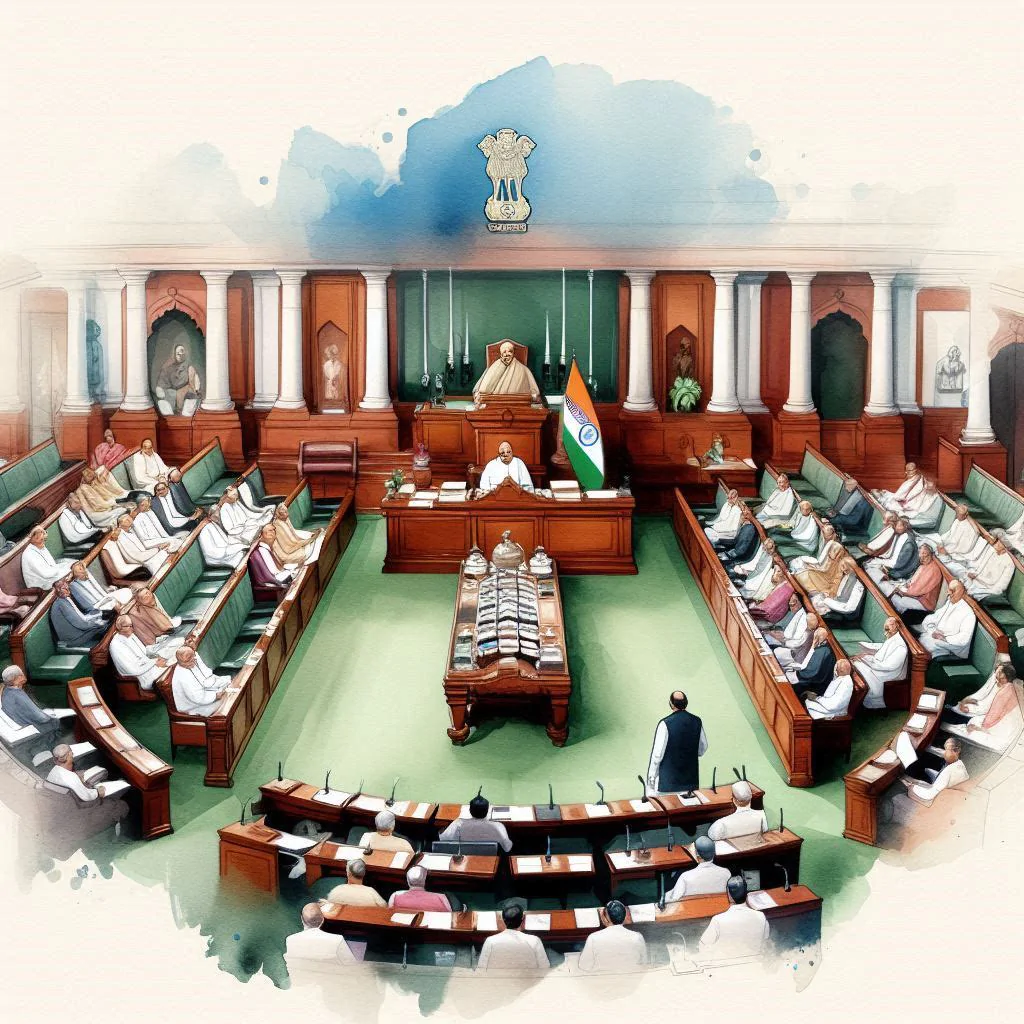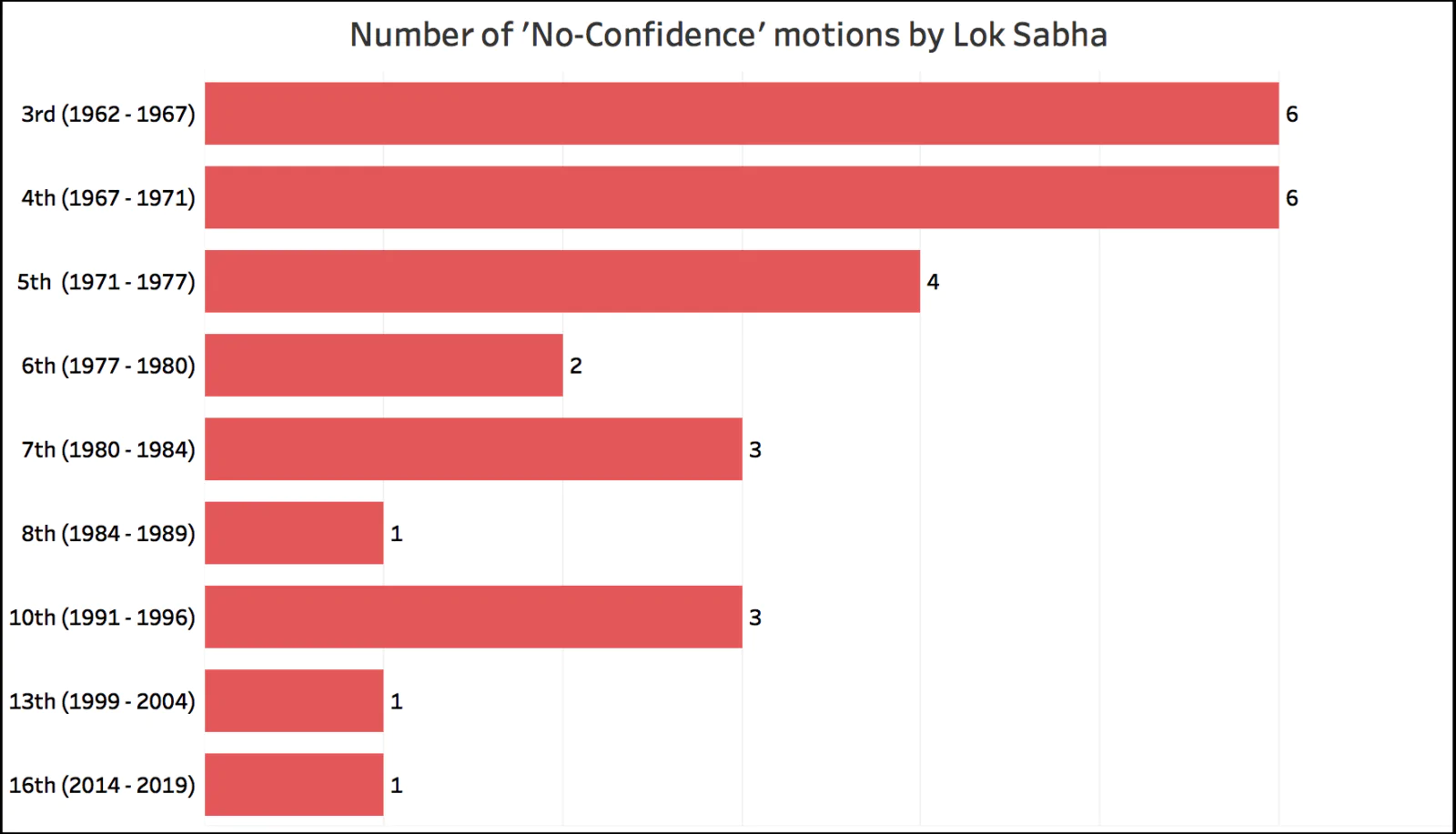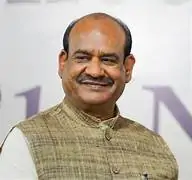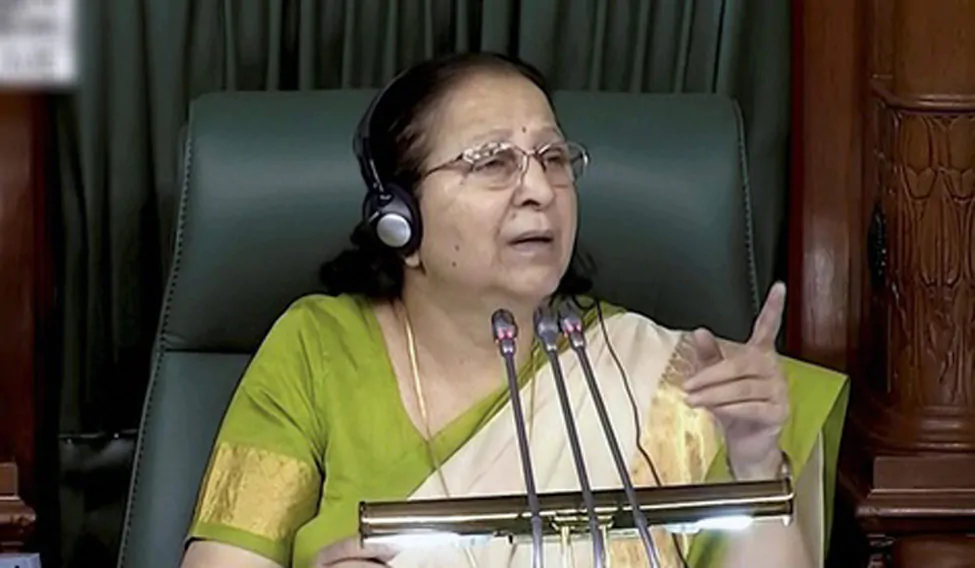Last Updated on July 29, 2024 7:26 pm
Understanding the Position of the Lok Sabha Speaker in India’s Legislative System

This esteemed position holds significant power within the legislative framework, serving as the guardian of parliamentary proceedings and the arbiter of constitutional norms. Understanding the Speaker’s authority is crucial for grasping the dynamics of India’s democratic process. In this article, you’ll explore the extensive powers vested in the Lok Sabha Speaker, from maintaining order in the House to interpreting rules and making critical decisions that shape the nation’s legislative landscape. Prepare to uncover the nuances of this influential office and its impact on India’s governance.
The Role of the Lok Sabha Speaker in India’s Parliament
As you delve into the intricacies of India’s parliamentary system, you’ll find that the Lok Sabha Speaker holds a position of paramount importance. This role is crucial in maintaining the smooth functioning of the lower house of India’s bicameral legislature.
The Speaker serves as the presiding officer of the Lok Sabha, maintaining order and decorum during parliamentary proceedings. You’ll observe that they remain impartial, ensuring fair debates and discussions. Their neutrality is essential in upholding the democratic principles of the house. In your exploration of the Speaker’s role, you’ll discover their significant administrative responsibilities. They interpret and enforce the rules of procedure, deciding on the admissibility of motions and resolutions. The Speaker also determines the order of business and allocates time for debates, effectively managing the legislative agenda.
You’ll note that the Speaker plays a crucial role in safeguarding the Constitution within the parliamentary framework. They have the authority to certify money bills and decide on the disqualification of members under the anti-defection law. This responsibility underscores their role in preserving the integrity of the legislative process.
Beyond their parliamentary functions, you’ll find that the Speaker represents the Lok Sabha in its collective capacity. They interact with parliaments of other countries, fostering international legislative relations. This aspect of their role contributes to India’s parliamentary diplomacy on the global stage.
Powers and Functions of the Lok Sabha Speaker
As the presiding officer of India’s lower house of parliament, the Lok Sabha Speaker wields significant authority. The Speaker possesses crucial decision-making power regarding the classification of bills. You should note that they have the final say in determining whether a bill qualifies as a money bill. This distinction is vital, as money bills follow a different legislative path and cannot be rejected by the upper house, the Rajya Sabha.
When new members join the Lok Sabha, you’ll observe the Speaker performing important ceremonial functions. They administer oaths to incoming parliamentarians, officially inducting them into their roles. Additionally, the Speaker oversees the election process for their own successor, ensuring a smooth transition of power when necessary.
Lok Sabha Speaker Holds the Power to Disqualify MPs under Anti-Defection Law
You’ll find that the Speaker’s authority extends to managing the day-to-day operations of the Lok Sabha. They have the final word on the conduct of business within the House, maintaining decorum and ensuring productive debates. This includes:
- Deciding the order of speakers
- Allocating time for discussions
- Ruling on points of order
- Suspending disruptive members if needed
A key part of parliamentary sessions is the Question Hour, during which Members of Parliament (MPs) can interrogate ministers about government actions and policies. However, MPs cannot simply speak up whenever they wish. They must first secure the Speaker’s approval to pose a question. This process typically begins with MPs submitting their questions in advance. The Speaker’s office then reviews these submissions to ensure they comply with parliamentary norms and rules.
Even if a question is pre-approved, the MP must still wait for the Speaker to acknowledge them during the session before they can actually ask it. This system helps maintain order and prevents MPs from speaking out of turn or raising irrelevant issues. The Speaker has the discretion to allow or disallow questions based on their relevance, urgency, or adherence to parliamentary standards. In some instances, they may permit impromptu questions or clarifications, but this remains at their discretion.
MPs can raise a “point of order” to alert the Speaker to any breach of rules, but even this must be recognized by the Speaker. This procedure ensures that parliamentary discussions remain structured and pertinent. It emphasizes the Speaker’s role as both the guardian of the house’s dignity and the arbiter of its proceedings, ultimately contributing to the orderly functioning of India’s parliamentary democracy.
The Lok Sabha Speaker wields significant authority under the Anti-Defection Law, as outlined in the Tenth Schedule of the Indian Constitution. This law empowers the Speaker to disqualify Members of Parliament (MPs) who defect from their original political party or violate party directives. The Speaker’s role is pivotal in maintaining party discipline and preventing political instability arising from frequent party-switching.
An illustrative example occurred in 2019, when then-Speaker Sumitra Mahajan disqualified Sharad Yadav and Ali Anwar from the Rajya Sabha due to their anti-party activities. Similarly, in 2020, Rajasthan Assembly Speaker C.P. Joshi initiated disqualification proceedings against 19 Congress MLAs, including Sachin Pilot, for alleged anti-party actions. These instances underscore the Speaker’s critical role in shaping parliamentary composition and influencing political dynamics.
More recently, in 2022, Maharashtra Assembly Speaker Rahul Narwekar faced a complex situation involving the disqualification of Shiv Sena MLAs, including Chief Minister Eknath Shinde. This case highlighted the Speaker’s interpretive and application role in politically sensitive scenarios.
Lok Sabha Speaker Must Grant the Permission for No-Confidence Motion
The Lok Sabha Speaker plays a crucial role in allowing No Confidence Motions, which are significant parliamentary tools used to challenge the government’s majority and potentially force a change in leadership. Let me elaborate on this process with some real examples:
1. Function of No Confidence Motion:
A No Confidence Motion is a formal proposal in the Lok Sabha expressing a lack of trust in the current government. If passed, it can lead to the government’s resignation.
2. Speaker’s Role:
The Speaker has the authority to admit or reject a No Confidence Motion. They must ensure that the motion meets procedural requirements and has sufficient support before allowing it to be presented in the house.
3. Procedure:
For a No Confidence Motion to be admitted, it needs the support of at least 50 members. The Speaker then announces the motion in the house and allocates time for debate.
Real Examples:

1. 2018 No Confidence Motion:
In July 2018, then-Speaker Sumitra Mahajan admitted a No Confidence Motion against the Narendra Modi government. This was the first such motion in 15 years. The motion was moved by the Telugu Desam Party (TDP) and supported by several opposition parties. After a day-long debate, the motion was defeated.
2. 2003 No Confidence Motion:
Speaker Manohar Joshi admitted a No Confidence Motion against the Atal Bihari Vajpayee government. This motion was moved by the Congress party but was ultimately defeated.
3. 1999 No Confidence Motion:
Speaker G.M.C. Balayogi allowed a No Confidence Motion against the Vajpayee government. This motion, moved after the Kargil War, led to the fall of the government by a single vote, resulting in fresh elections.
4. 1993 No Confidence Motion:
Speaker Shivraj Patil admitted a No Confidence Motion against the P.V. Narasimha Rao government. This motion, related to the securities scam, was defeated after a heated debate.
5. Multiple Motions in 1960s and 1970s:
During the tenures of prime ministers Indira Gandhi and Morarji Desai, several No Confidence Motions were admitted by various Speakers, reflecting the political turbulence of those times.
Key Points:
– The Speaker’s decision to admit a No Confidence Motion is based on procedural rules and the support it garners.
– Even if a motion is unlikely to pass, the Speaker may allow it to uphold democratic principles and allow the opposition to voice its concerns.
– The admission of a No Confidence Motion often leads to significant political debate and can influence public opinion, even if the motion itself fails.
These examples demonstrate how the Speaker’s role in admitting No Confidence Motions is a vital part of parliamentary democracy, allowing for formal challenges to the government’s authority and facilitating important political debates.
Through these powers, the Lok Sabha Speaker plays a crucial role in upholding the integrity and efficiency of India’s parliamentary democracy. While the Speaker’s decisions carry significant implications, it’s essential to recognize that they are subject to judicial review, ensuring a system of checks and balances in the application of this constitutional power.
Process for Electing the Lok Sabha Speaker
The election of the Lok Sabha Speaker is a crucial process in India’s parliamentary system. As you delve into this procedure, you’ll find it combines constitutional mandates with democratic principles. Article 93 of the Indian Constitution stipulates that the Lok Sabha shall choose its Speaker and Deputy Speaker. This provision ensures that the selection process is grounded in the country’s fundamental law, giving it legitimacy and importance.
After the general elections, the newly formed Lok Sabha must elect its Speaker. Before this can occur, a temporary chairperson, known as the Speaker pro tem, is appointed. For the 18th Lok Sabha, BJP MP Bhartruhari Mahtab was designated as the Speaker pro tem, tasked with overseeing the initial proceedings.
The election of the Speaker typically takes place during the first meeting of the new Lok Sabha. Members of the house nominate candidates for the position. Following nominations, a majority vote determines the winner. This democratic process ensures that the Speaker has the support of the house majority. The requirement for a majority vote underscores the importance of consensus in selecting the Speaker. This approach aims to ensure that the chosen individual can effectively manage house proceedings and command respect from all political factions.
About the Current Lok Sabha Speaker Om Birla

Om Birla, a prominent figure in Indian politics, has been serving as the Speaker of the Lok Sabha since June 2019. You may recognize him as the representative of the Kota constituency in Rajasthan, where he has been elected as a Member of Parliament. Birla’s political journey has been marked by dedication and service, culminating in his re-election for a second term as Speaker in June 2024. During his tenure as Speaker, Birla has demonstrated a commitment to upholding the democratic processes of the Lok Sabha. His leadership style is characterized by impartiality and a focus on maintaining decorum in the house. Under his guidance, the Lok Sabha has witnessed several significant legislative discussions and decisions.
Birla’s role as Speaker has been crucial in shaping the conduct of parliamentary affairs. He has introduced various initiatives to enhance the efficiency of legislative proceedings and increase transparency. These efforts have included leveraging technology to streamline operations and improve communication between parliamentarians and their constituents.
As you observe Birla’s tenure, you’ll notice his efforts to make the Lok Sabha more accessible to the public. He has championed programs to educate citizens about parliamentary processes and encourage youth participation in democracy. These initiatives have contributed to a broader understanding of India’s legislative system among the general population.
Suggested Reading : Decoding Government Decisions: The Art of Analysing and Understanding Policy Choices
Prominent Lok Sabha Speakers Through History
Throughout India’s parliamentary history, several distinguished individuals have held the esteemed position of Lok Sabha Speaker. These leaders have played crucial roles in shaping the nation’s legislative processes and maintaining decorum in the house.
The first Lok Sabha Speaker, Ganesh Vasudev Mavalankar, set the foundation for this pivotal role. Serving from 1952 to 1956, he established many of the procedures and conventions that continue to guide the house today. Following him, Ananthasayanam Ayyangar further developed the Speaker’s role, emphasizing impartiality and fairness in parliamentary proceedings.
You’ll find that women have also made significant contributions as Lok Sabha Speakers. Meira Kumar, who served from 2009 to 2014, holds the distinction of being the first woman and Dalit to occupy this position. Her tenure was marked by efforts to modernize parliament and enhance its efficiency.
In recent years, Sumitra Mahajan‘s tenure (2014-2019) saw the implementation of digital initiatives to streamline parliamentary functions. The current Speaker, Om Birla, has continued this trend of modernization while also focusing on increasing the productivity of parliamentary sessions.

These Speakers, among others, have left indelible marks on India’s parliamentary system. Their leadership has been instrumental in upholding democratic values and ensuring the smooth functioning of the Lok Sabha, India’s primary legislative body.
FAQs on the Lok Sabha Speaker: Understanding this Crucial Parliamentary Position
What are the primary responsibilities of the Lok Sabha Speaker?
The Lok Sabha Speaker plays a pivotal role in India’s parliamentary system. Your understanding of this position is crucial for grasping the functioning of the lower house. The Speaker’s primary responsibilities include presiding over Lok Sabha sessions, maintaining order during debates, and ensuring the smooth conduct of parliamentary business. Additionally, you should know that the Speaker interprets and enforces the rules of procedure, decides the admissibility of motions and resolutions, and has the final say on points of order.
How is the Lok Sabha Speaker elected?
You might wonder about the selection process for this important position. The Speaker is elected by the members of the Lok Sabha from amongst themselves, typically after a new Lok Sabha is constituted following general elections. The election is usually conducted by secret ballot, and the candidate who secures a majority of votes becomes the Speaker. It’s worth noting that while the Speaker is often from the ruling party, there have been instances where a member of the opposition has held this position.
What powers does the Lok Sabha Speaker possess?
Understanding the Speaker’s powers is essential for comprehending their influence in parliamentary proceedings. You should be aware that the Speaker wields significant authority, including:
- The power to recognize members to speak during debates
- Discretion to allow or disallow discussions on specific topics
- Authority to suspend members for disorderly conduct
- Granting Permission For No-Confidence Motion
- The casting vote in case of a tie during voting on bills or motions
Moreover, the Speaker’s decisions on parliamentary matters are considered final and cannot be challenged in any court of law.
As you’ve seen, the Lok Sabha Speaker wields significant power within India’s legislative system. From maintaining order during debates to deciding on the admissibility of bills, the Speaker’s role is crucial in ensuring the smooth functioning of the lower house. While expected to remain impartial, the Speaker’s decisions can greatly impact legislative outcomes. Understanding the extent of the Speaker’s authority is essential for grasping the intricacies of India’s parliamentary democracy. As you follow political developments in the world’s largest democracy, keep in mind the pivotal position of the Lok Sabha Speaker and how their actions can shape the course of national legislation and governance.


